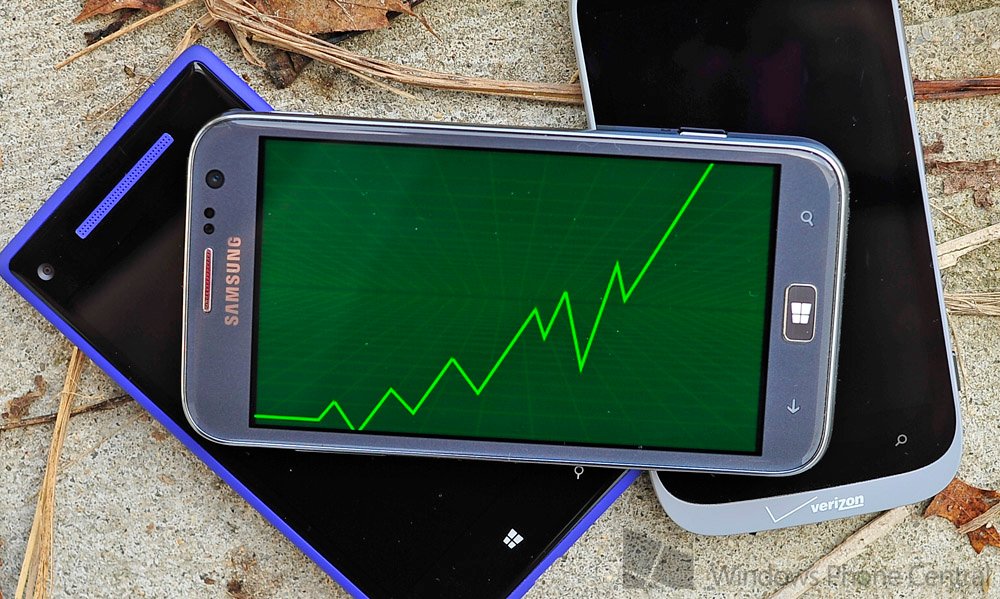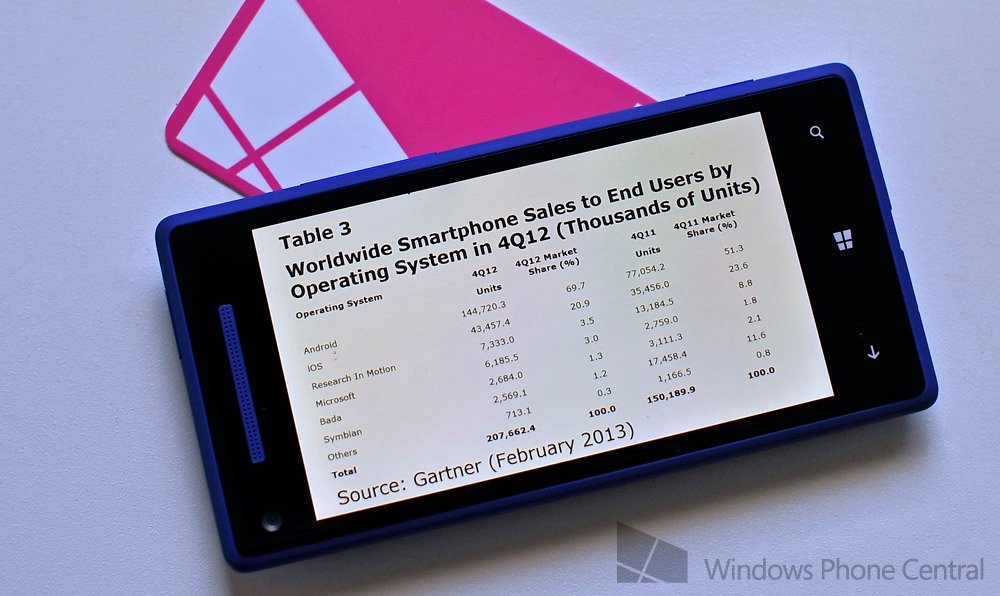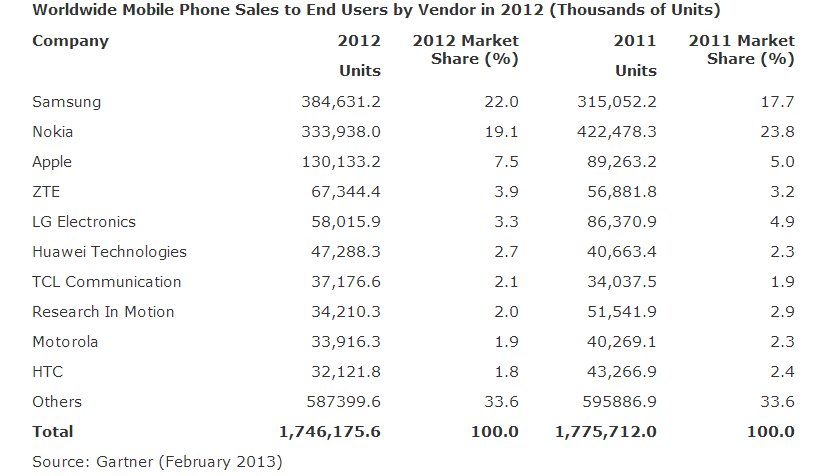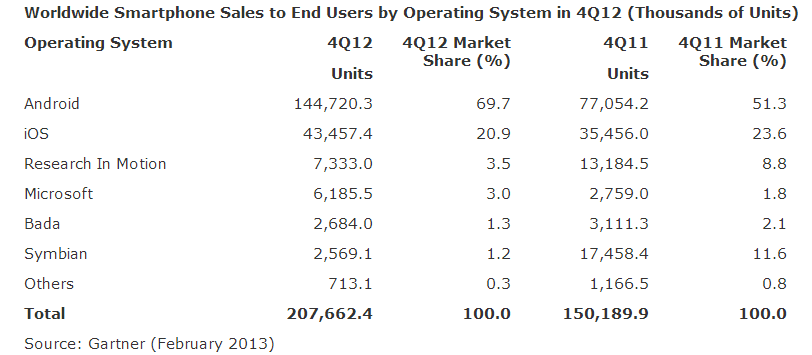Windows Phone sales up 124% for Q4 2012 but still dwarfed by Android, iOS

All the latest news, reviews, and guides for Windows and Xbox diehards.
You are now subscribed
Your newsletter sign-up was successful
Gartner has released their data for smartphone sales and market share for the fourth quarter in 2012 and while the data is not conclusive by itself, it does show general trends in where the market is heading.
For Microsoft and partners the picture is most certainly better than it was one year ago, which is the good news. The bad news is the hill to climb to global relevancy is still as massive as ever, mostly due to the continued growth of Android (specifically Samsung) and iOS. Meanwhile BlackBerry (formerly RIM), is still bleeding heavily prior to its transition to BB10, showing a massive decline in sales.

First, let’s look at Windows Phone as compared to the others. From Gartner:
“While Android grew 87.8 percent in the fourth quarter of 2012, RIM declined 44.4 percent in the same period. Microsoft had a better fourth quarter, with its share growing 1.2 percentage points, and its smartphone sales increasing 124.2 percent year-on-year.”
That growth of 1.2% brings Windows Phone smartphone sales up to 3% globally or roughly 6M units (versus 1.8% this time last year). At a 124% increase, that makes Windows Phone the fastest growing OS in terms of device sales when compared to iOS (declined), Android (+87%) and BlackBerry (-44%). That is quite impressive considering worldwide smartphone sales were down 1.7% for 2012.
Breaking it down by manufacture we can see companies like Nokia are still losing ground dipping to 19.1% (from 23.8%) and even poor HTC is dejected at 1.8% (from 2.4% one year earlier). The big winner is Samsung (up 85% at 23% market share) and surprisingly Huawei, who is now the #3 smartphone vendor is the world (see, we told you to keep an eye on the recent Windows Phone partner).
Blackberry got clobbered in 2012, pushing 34M units versus 52M the year prior. As an OS, BlackBerry dropped from 8.8% in 2011 to just 3% in 2012 in the fourth quarter. That’s due to the fact that their BB7 OS was put out to pasture and the market was forced to wait for BB10. In that sense, BlackBerry is no different than where Microsoft was during the Windows Mobile/Windows Phone transition and such a decline is expected.
What is clear from these numbers is BlackBerry has a hole to dig themselves out of while Microsoft, with 124% growth, may finally be taking off. Of course that assumes that Microsoft’s growth continues and that Q4 wasn’t a “blip”—that’s a big “if” because to be honest Windows Phone has not shown itself to be a market leader so far.
All the latest news, reviews, and guides for Windows and Xbox diehards.
What about that battle for third in terms of OEMs? Anshul Gupta, principal research analyst at Gartner, has this to say on the matter:
“There is no manufacturer that can firmly lay claim to the No. 3 spot in global smartphone sales”.
Indeed the same could be said about OS where BlackBerry is still ahead of Windows Phone (3.5% vs 3%). By all accounts Microsoft should have locked up that position in 2012 while RIM was nose-diving. Instead, they now have a competitor who is only limping but recovering—that’s dangerous.
Perhaps more importantly, no matter how well Windows Phone does, Samsung with Android is nearly impossible to catch. In fact, Samsung dominates Android with a massive 42% of that OS’s sales where their next competitor is only at 6%. Clearly Samsung is a juggernaut.
Will Windows Phone continue its growth? Will Nokia make a return in sales with its Mobile World Congress announcements? It's a tough call but at least things are positive—it’s just a question if it will remain so and if it’s enough.
Source: Gartner

Daniel Rubino is the Editor-in-Chief of Windows Central. He is also the head reviewer, podcast co-host, and lead analyst. He has been covering Microsoft since 2007, when this site was called WMExperts (and later Windows Phone Central). His interests include Windows, laptops, next-gen computing, and wearable tech. He has reviewed laptops for over 10 years and is particularly fond of Qualcomm processors, new form factors, and thin-and-light PCs. Before all this tech stuff, he worked on a Ph.D. in linguistics studying brain and syntax, performed polysomnographs in NYC, and was a motion-picture operator for 17 years.


